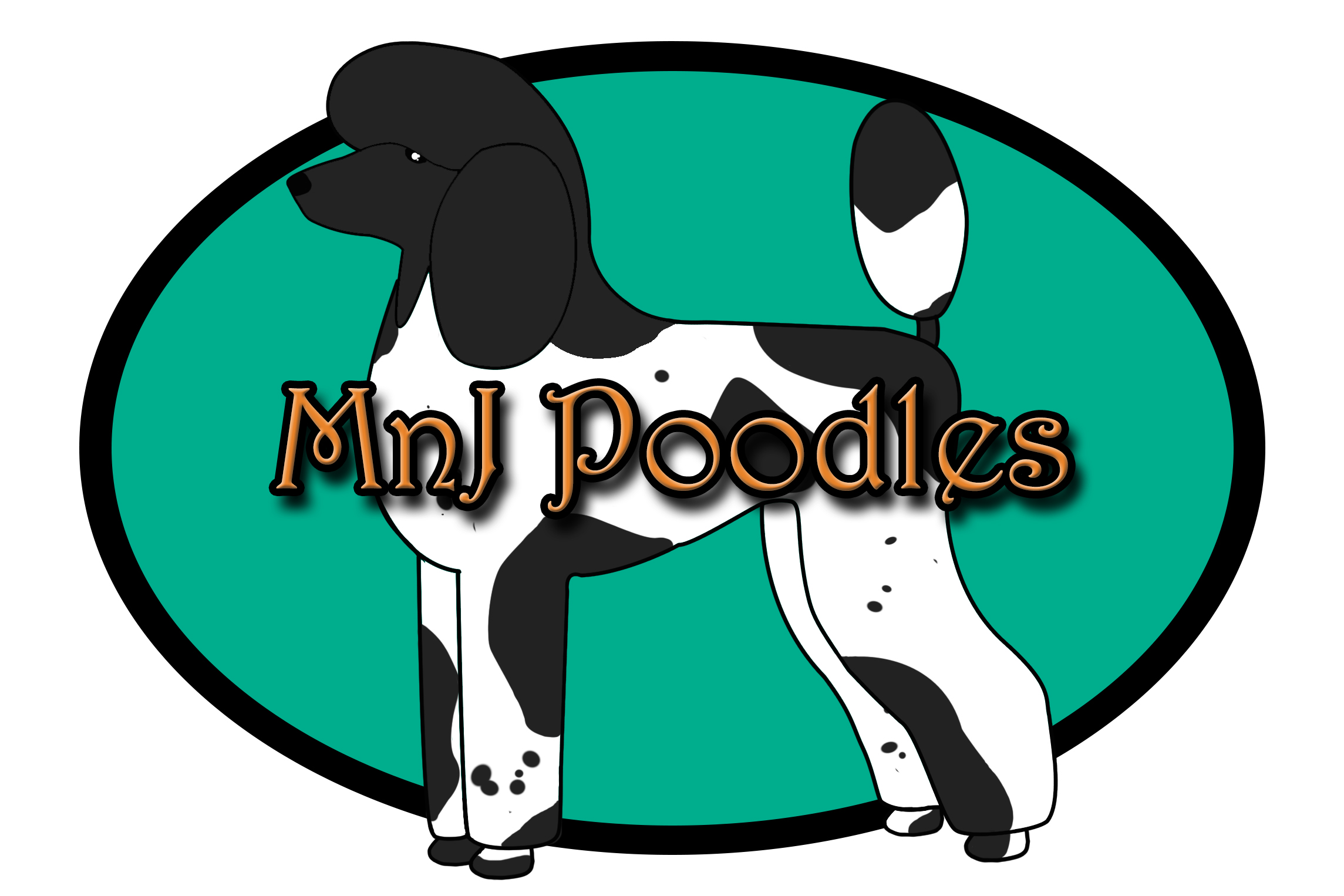Helpful Info
This page serves as one spot to find lots of good information – from vaccines to training to food and more – PLEASE READ BEFORE PICKING UP YOUR NEW PUPPY!!
***We want to hear from you!! Is there anything you feel we could add to our site that is important for you to know or anything you feel you need help with?***
WHEN YOU COME TO GET YOUR PUPPY, HERE ARE SOME VERY CRITICAL POINTS TO UNDERSTAND:
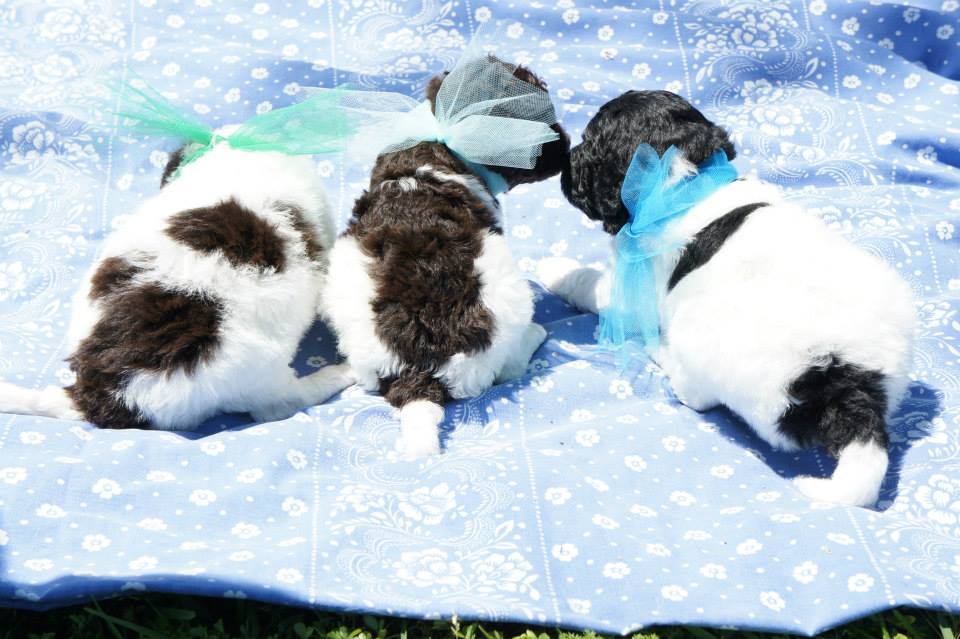
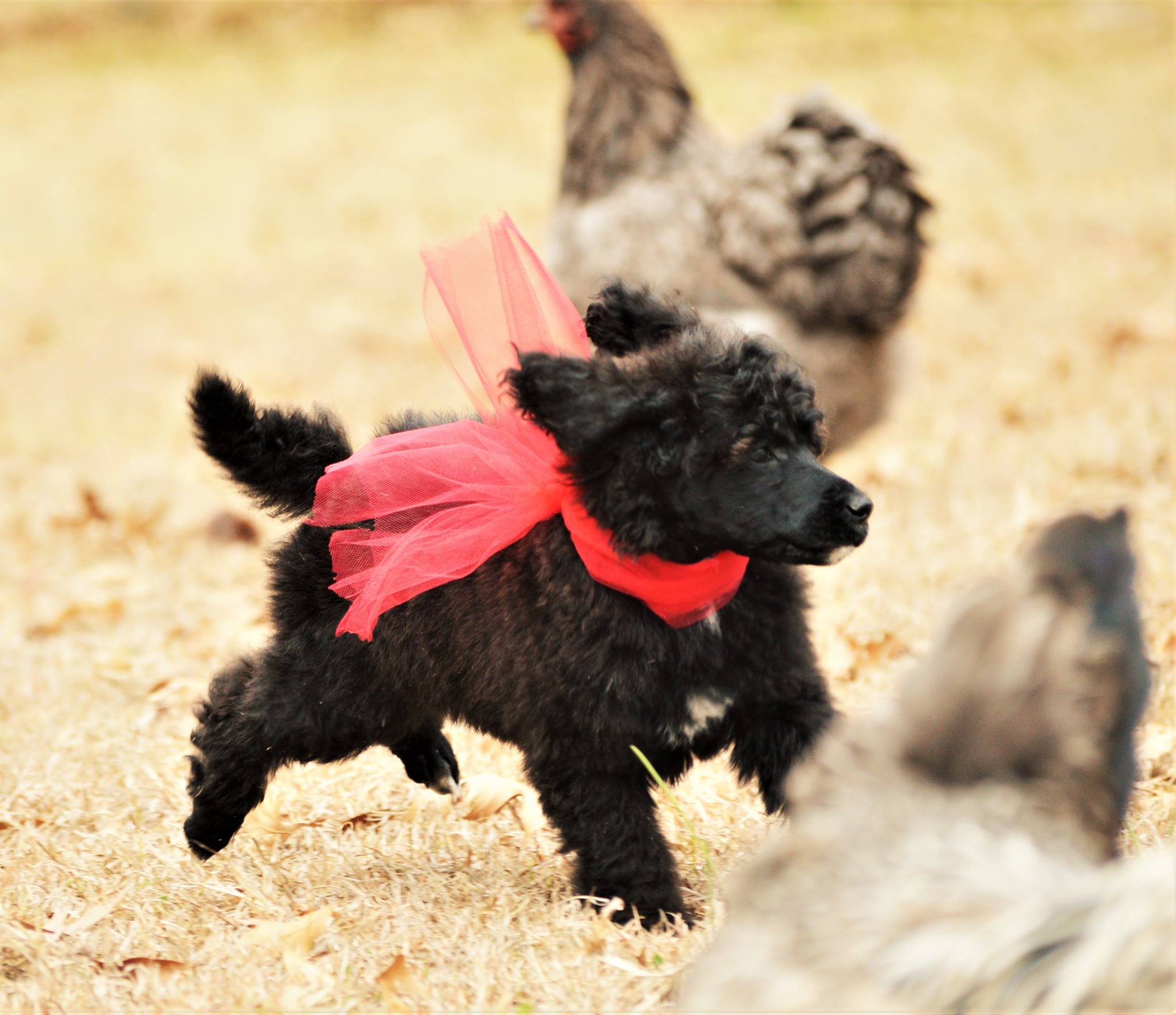
* First and foremost, puppies picked up at the earliest allowable time are NOT FULLY VACCINATED! This means your puppy is still vulnerable to deadly viruses like Parvo and Distemper! DO NOT EVER take a young puppy to places where there is a lot of dog traffic. These places are extremely high risk for deadly diseases when your puppy is still forming an effective immune response. Also understand the vet’s office is the number one place to catch a deadly virus!! Your puppy will need several more rounds of vaccines to complete core vaccinations and be protected.
* First vet visit– When you go to the vet with a puppy that is not fully vaccinated, please follow our suggestions. NEVER let your puppy touch the parking lot or area anywhere around the vet’s office, including inside the vet’s office. Remember sick dogs go to vets!! Do not let the puppy touch the table either. We suggest taking a towel from home that can be placed on the table first. It is best to take them in a crate and only take them out of it for the exam. Don’t let others pet or touch the puppy even if it’s a cute kid! During the exam, have the puppy on your towel from home and then when done, the towel goes to the laundry and puppy goes back in crate or stays in your arms. Assuming every surface has parvo until vaccinated is the best way to make sure your puppy stays safe. You can show off your puppy at pet stores or dog parks, only when your puppy has been fully vaccinated for at least one week. Until fully vaccinated, avoid dog parks, Petsmart, and groomers.
***********NEVER, EVER, EVER UNDER ANY CIRCUMSTANCES LET A VET GIVE MORE THAN ONE VACCINE IN A VISIT. PERIOD!!!!! WE CANNOT WARRANTY AGAINST OVERVACCINATION AND INJURY FROM IT.***********
*****TRAINING AND SOCIALIZATION******* Yes we want this one to stand out the most! Your puppy is literally a tiny ball of HUGE potential when you purchase a poodle from us. What you put into your puppy in the critical first 12 weeks and then beyond into the first year will determine a huge amount of the rest of it’s life – the more you train and interact, the better your puppy will be. We ARE fans of Puppy Culture and have incorporated a lot of that into how we raise our puppies and we are happy to recommend her training videos with one note: we did find many struggle with clicker training but under stand what she is teaching is called “shaping” and there are other methods to achieve results. SOCIALIZATION is absolutely KEY in Poodles and must, must be done or they can be very reticent and distrusting of strangers and new situations. It is unrealistic and unfair to wait until six months to a year to expose puppy to life outside the home and expect things to go smoothly. This breed generally lives to please you. Praise to a Poodle is like the finest chocolate or other special treat- they live for it! This breed is also well noted for it’s high intelligence and that is a part of what has kept them so popular for so many decades. The downside to all that intelligence is that your puppy can potentially be easily bored and become frustrated. Boredom is the root of so many behavior problems we hear about and so is a lack of confidence. By doing some basic training EARLY you are setting up situations to reward and praise your puppy. Just like with children, this gives them confidence and makes them happy. Although poodles don’t have as high a requirement for exercise as many large breeds do, they still need and crave it but it is equally important to keep it age appropriate. Because socialization is so important, we very much encourage you to take some sort of class with your puppy. The class doesn’t have to be puppy training. If you look around, you might find Rally classes which are still basic obedience commands. Classes are so great also for the added socialization skills. It is our opinion that the rewards outweight the risks so we suggest joining a class by around 10-11 weeks that specializes in younger puppies.
From Puppy Culture, here is a link to their age appropriate exercise chart. https://www.puppyculture.com/new-exercise-chart.html
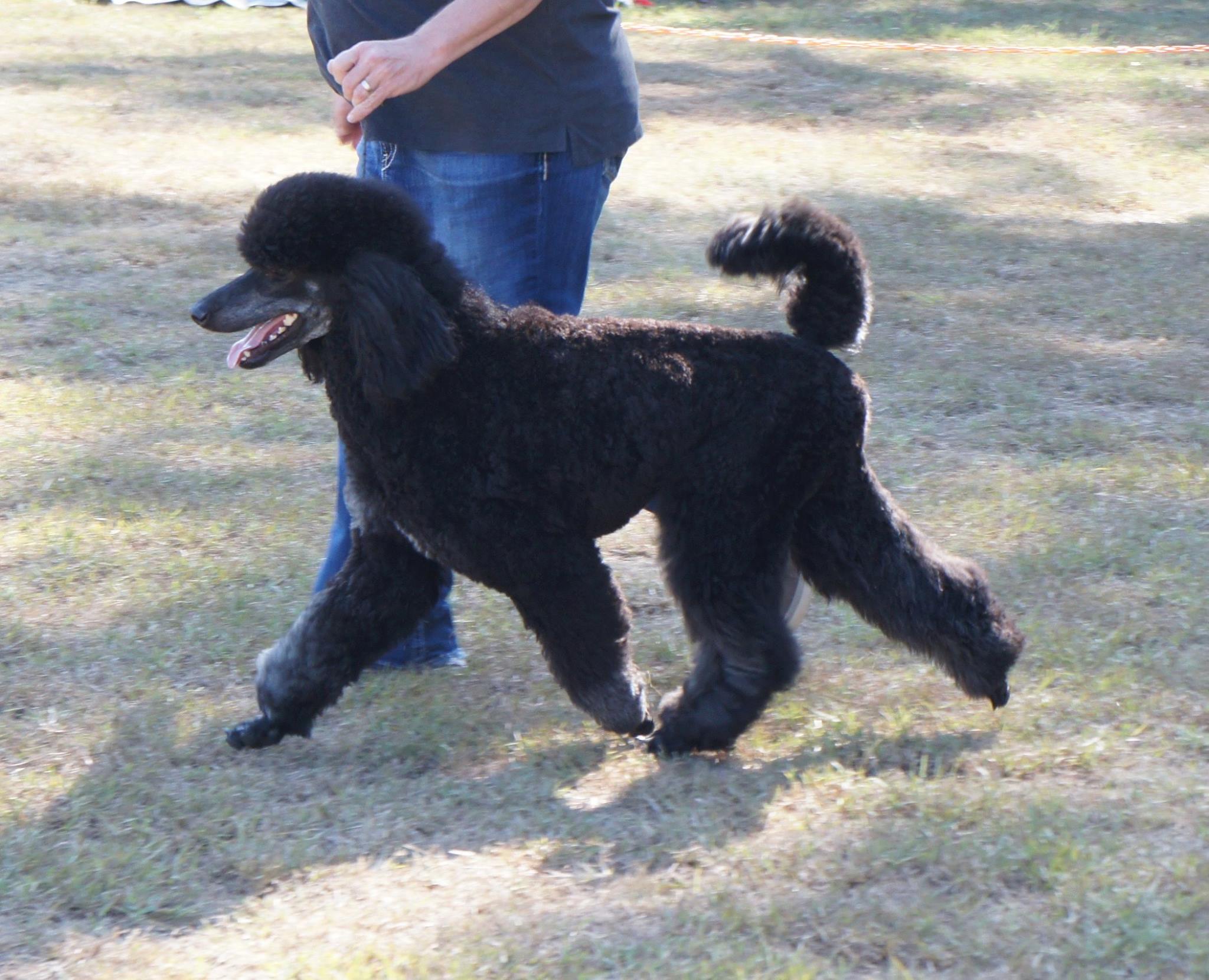
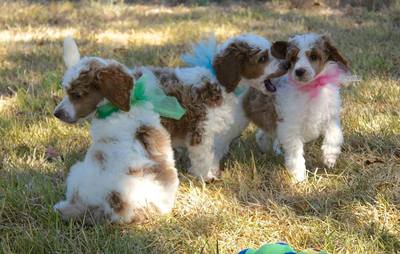
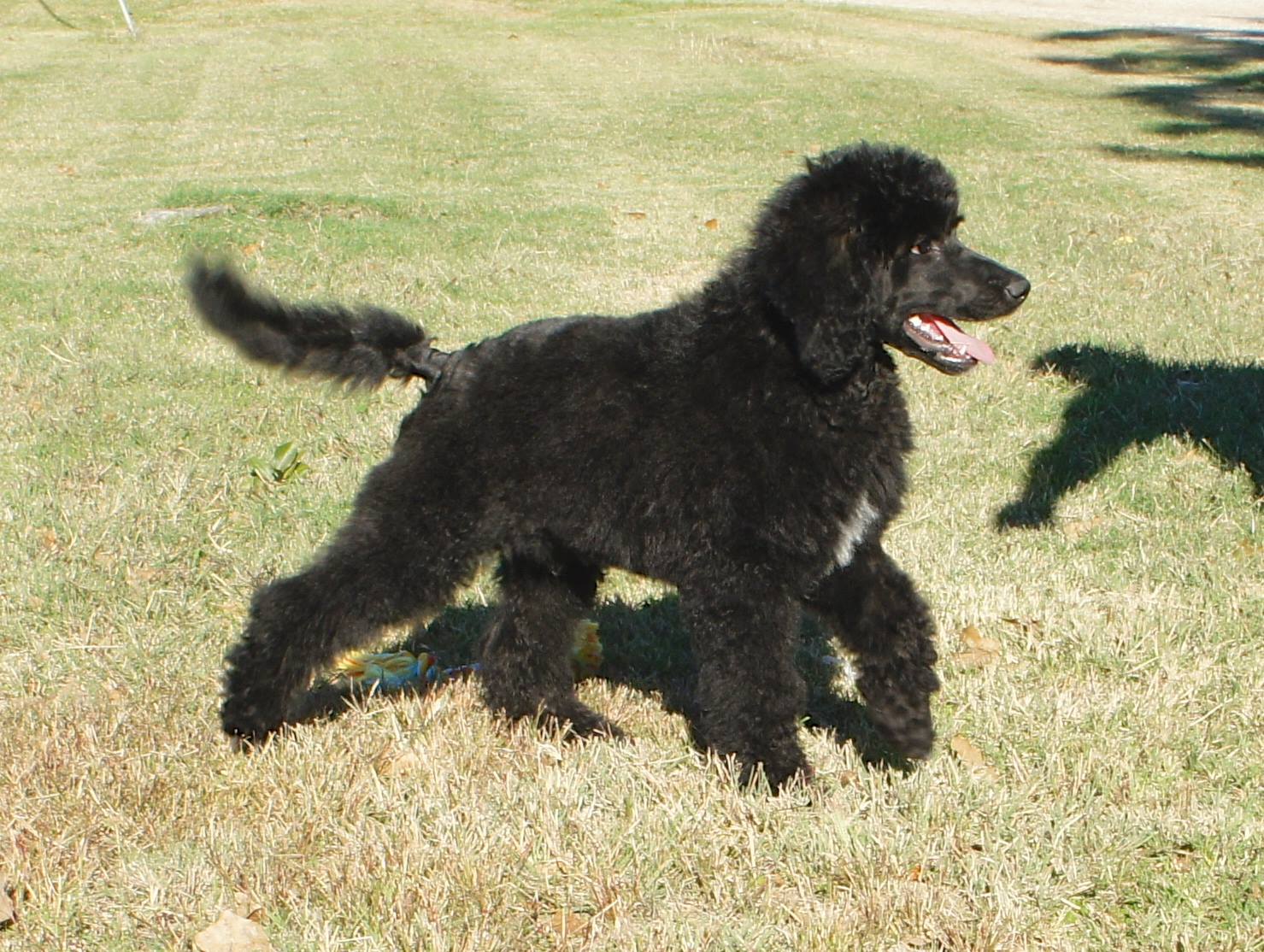
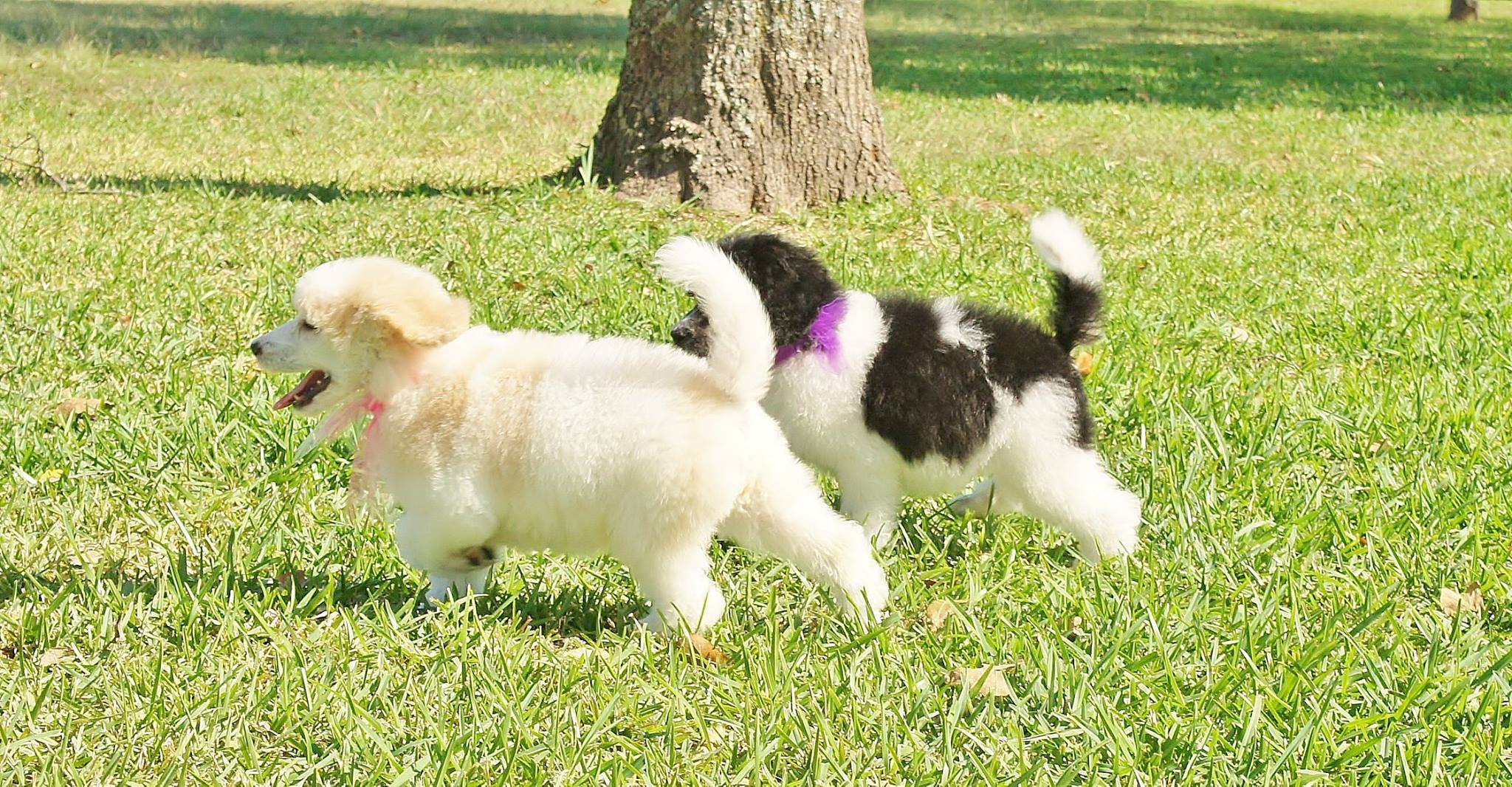
* Potty training– We have already done a lot to get your puppy started on the right foot in the new home with a combination of steps in our set up and routine. If you are consistent about putting your puppy outside, especially after meals, play, and just waking up, the less accidents you will have. This set up equals the best success. Without a doubt, crate training will give you the best possible way to handle this and we highly recommend it. We know some people just can’t stand the idea of the crate, but we ask all to at least consider trying it. We promise your puppy will adopt the crate as their own special space and will freely enter it as they mature. They will get to the age where they will want that more and more. If your puppy ever needed emergency care, the stress of never having been crated will terrify them when we most need them calm. A puppy that has been crate trained will feel calmed by a hospital crate. Finally, SOME Poodles WILL CONSUME ITEMS THEY SHOULDN’T – like socks! These can cause a blockage and potentially be DEADLY! Crating them when you can’t supervise is your safest option! We know of more than one person that has lost a poodle to blockage! It can happen so fast and they will learn how to be sneaky when you aren’t watching. You’d be amazed at how fast a sock or other items can be ingested!
* Socialization – One phrase we will repeat over and over is The Critical First 12 weeks – that is the most inportant time for socialization work to be done. It can be frustrating to any breeder to hear from a client that their puppy isn’t behaving well, is fearful of guests or going anywhere or that they don’t enjoy going in the car etc. Your puppy will never enjoy these things if you always leave the pup at home, without meeting new people, smells, and other new experiences. Months later, when you try bring to bring the puppy with you on your errands or visits, they will not know how to handle all of this, as you just turned everything upside down! This is another area where we have taken many steps to help prepare your puppy for the world but you must continue what we’ve started for this to be a success. We can only do so much in 9 weeks. If you want the kind of dog that can go anywhere, do anything and behaves nicely when out and about, you can make that happen, but you must start early. While still working on those vaccines, you can take trips to low risk places like Home Depot or Lowes – very little dog traffic but puppy rides in the car, sees and hears shopping carts, will meet new people and see and hear new things. So, think about little short trips you can make weekly at a minimum – even parking lots and walking the sidewalk at a shopping strip is very beneficial. We do strongly feel it is worth the risk to enter puppy in some sort of classes while still going through vaccinations. Encourage stangers of all shapes, sizes and colors to pet the puppy and ideally, bring along some treats they can also feed the puppy. They will associate strangers with good things. Car sickness is common but often is outgrown so be patient and try using the crate with extra towels to switch out. Riding in the back is often the bumpiest place to be. Move the pup up closer to the middle of the car. Raise them up so they can see out and sometimes that eases the motion sickness. If puppy acts fearul in a situation, calmy back off and distract as best way to handle their fear. Also, fear stages are very real and occur a few times in the first year of development so when we observe these happening, it’s best to back off a bit. Wherever you are in training or exposing what has caused the reaction, don’t stop entirely but instead take a few steps back to where they were comfortable and try again later to progress. As mentioned earlier, you’d be amazed at what you get out of some basic obedience classes. It adds socialization opportunities as well as teaches good manners and confidence. If your puppy misses the socialiaztion window and has the misfortune of becoming fearful, there are still training methods to help cope with this but you will need to seek help as it becomes much more difficult and more about desensitizing than training.
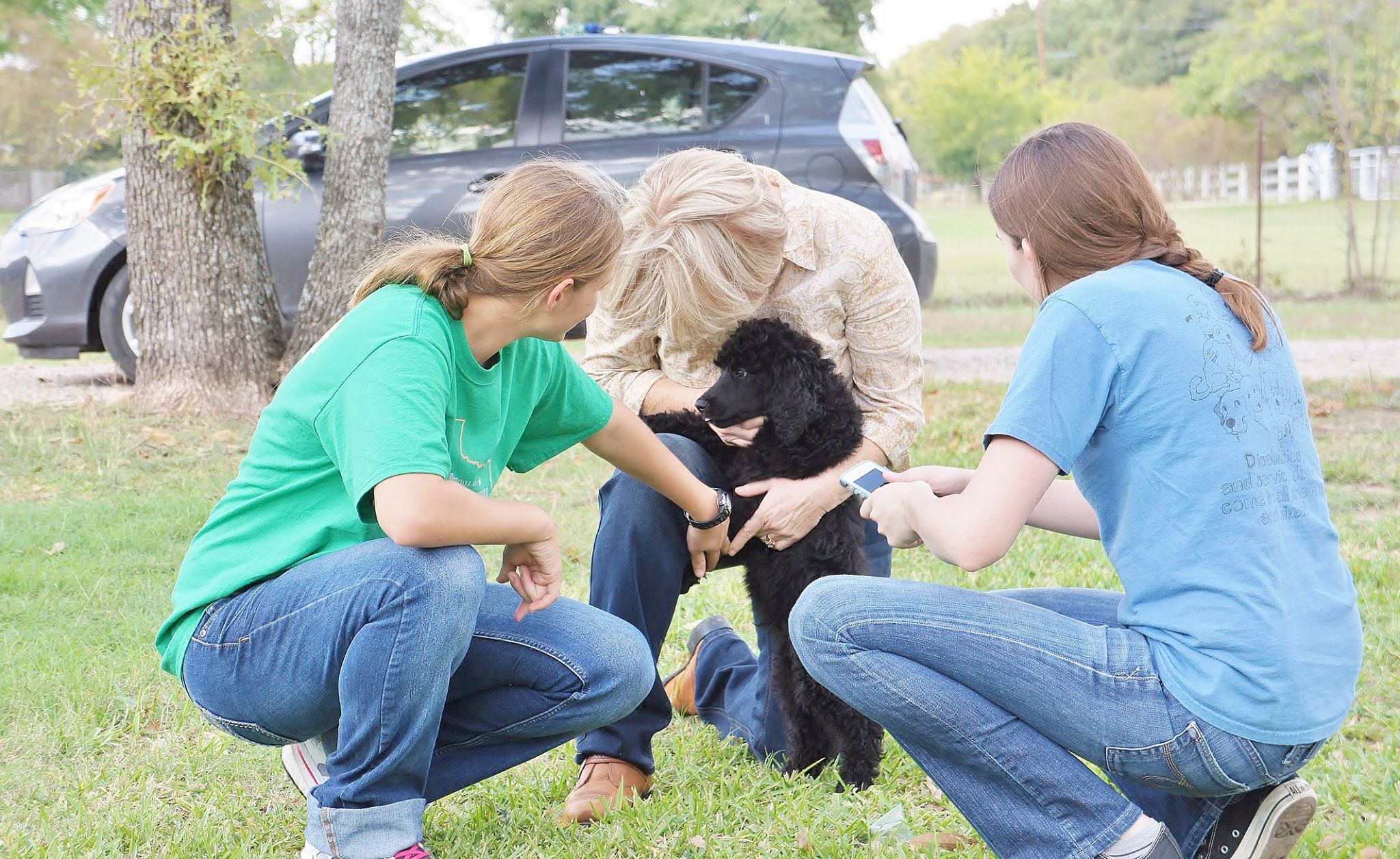
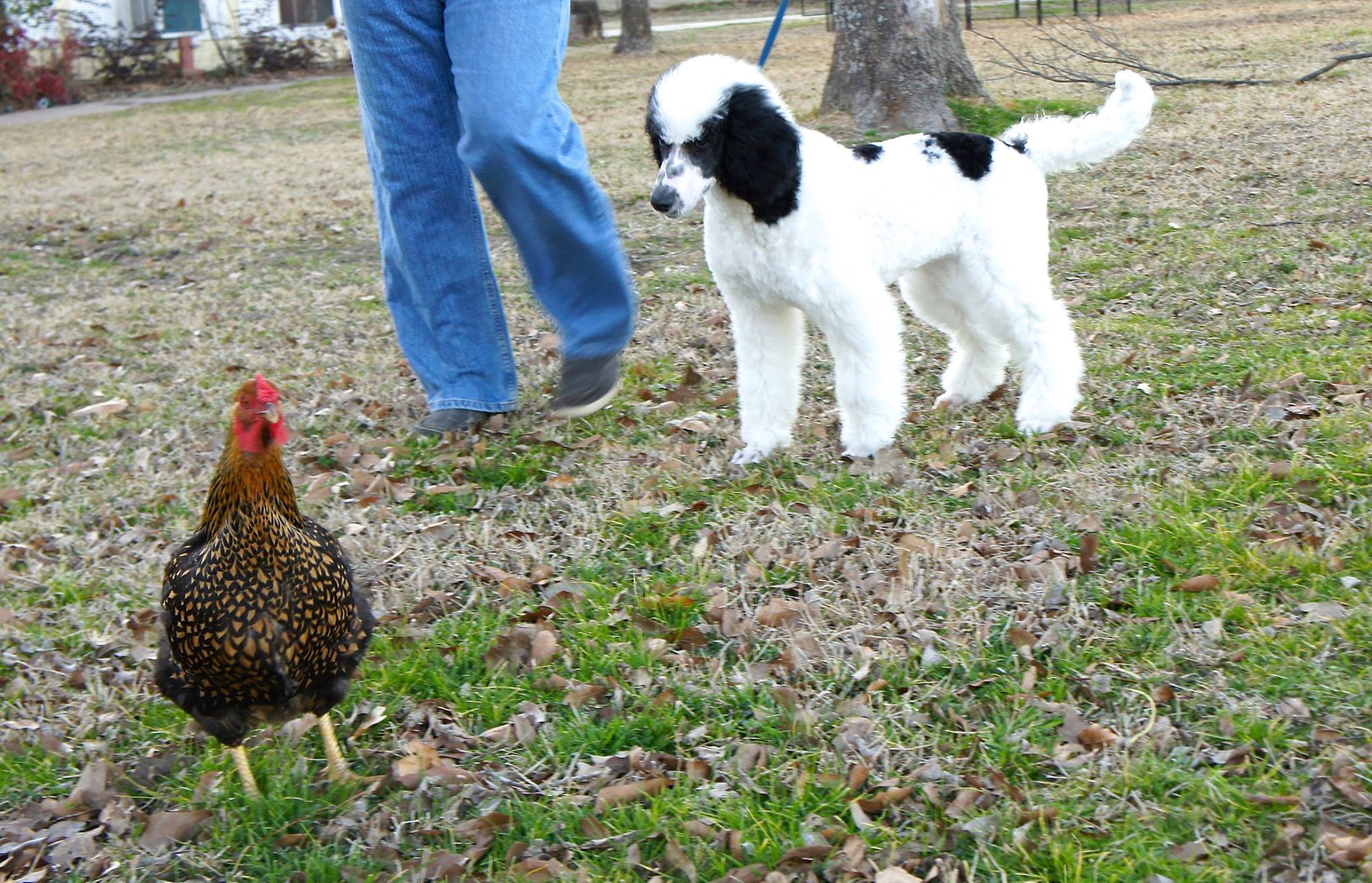
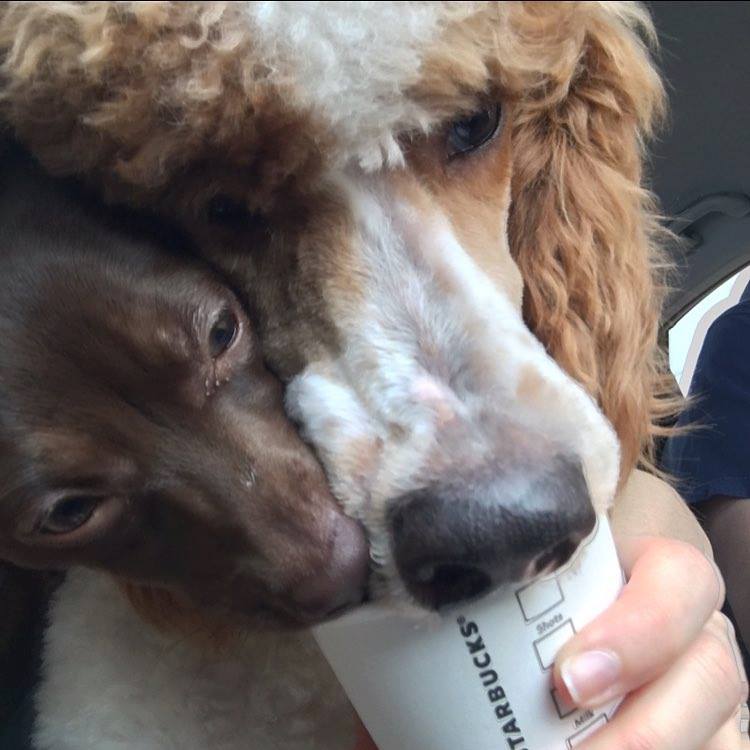
* Food– One of the most common questions we get asked is about food. Your puppy has been started on a food we have spent tons of hours researching ahead of time and it’s one that works for all of our dogs across the board. It is critical you not change food immediately upon puppy coming home. Puppy will already be under stress and won’t show it in obvious ways that most pet owners are aware of and can trigger bowel problems. Keep treats to a minimum as well during settling period and should your puppy have a loose stool, PLEASE CALL US FIRST BEFORE YOU DO ANYTHING. Changing food usually makes this worse so let us help you solve the problem, along with your vet. We currently feed Purina ProPlan Sport 30/20. You’ll see these numbers listed on the bag. We will send food home with your puppy but we also advise you buy a large bag before pick up. Feed at least one full bag before making changes and if changing, it is essential you mix both at slowly increasing levels as you change over. Never make instant changes, as this will cause upset tummies.
NOTE: Since adding this info about what food we have selected, vets and nutrionists have discovered that many animals are experiencing diet related DCM, a heart condition brought on by something blocking the absorption of taurine and it is theorized at this time there is a negative relationship with legumes and potatoes that may the the root cause. It is now highly advised to avoid BEG diets – which stands for those overpriced Boutique foods, Exotic protein foods and Grain Free foods. I have never understood the public perception that Purina is bad when the vast majority of pros in the dog world prefer it over any other brand. We learned the hard way after experieincing a lot of other problems like yeast, hot spots, missed heats, low litter counts, difficulty weaning puppies and getting healthy stools. Once we switched to ProPlan we have been amazed at the results. Coats are so healthy, eyes are clear, ears stay cleaner, our mothers whelp like she wolves and keep fabulous condition while nursing their babies and our babies wean beautifully. The proof is in the pudding – Purina spends more money on research and development than any other company out there. They win and thrive by selling a food that people love and feel good about so please know we didn’t choose this food lightly or to save money or any other reason than we strongly feel it is the best. If you choose to feed raw or another diet, we just ask you research very carefully and we simply cannot recoomend any commercially prepared raw foods as the testing just doesn’t impress us. We recommend you get with Tufts University for help with this as they are the leaders in canine nutrition.
* Grooming – Poodles have a coat that grows continuously like hair and therefore do require regular grooming. It’s unfair and unkind to not have your puppy groomed regularly by yourself or with a trained groomer. We have taken great care to start this process for you here by grooming them weekly from about four weeks of age so they can become accustomed to it. We can’t possibly guarantee your puppy will hold it’s paw out to be shaved at 9 weeks eithe, but by continuing the training we’ve started, your puppy can mature into an adult that isn’t stressed out by the process. This can be a wonderful bonding time if you choose to groom at home, but we recommend starting out with a professional groomer until puppy is mature and trained enough to have good grooming manners. We HIGHLY recommend forming a good relationship with a groomer. Initially, once vaccines are covered, find one that might be willing to work with you in bringing the puppy in a little more frequently to begin with even if just for a bath and blow dry, until they are comfortable. The groomer can do face and feet as necessary. If you prefer fuzzier styles, it’s still a very good idea to get frequent bath and blow outs to start with then gradually you can increase time between visits and puppy learns grooming manners. Either way, the key to your baby not being stressed by the grooming process is lots of early exposure! Your groomer will thank you when he or she doesn’t have to wrestle a fully grown large breed dog that is terrified.
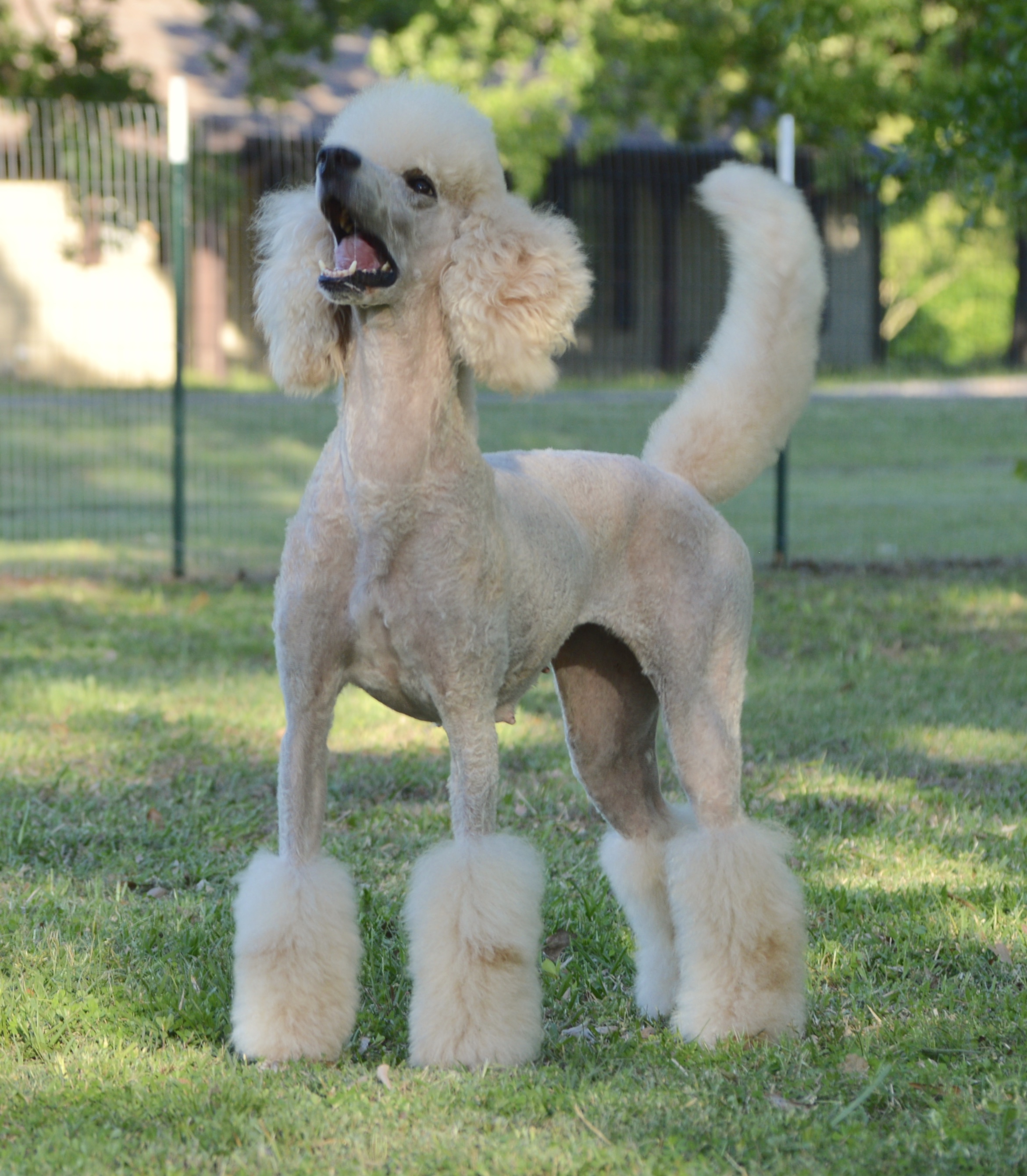
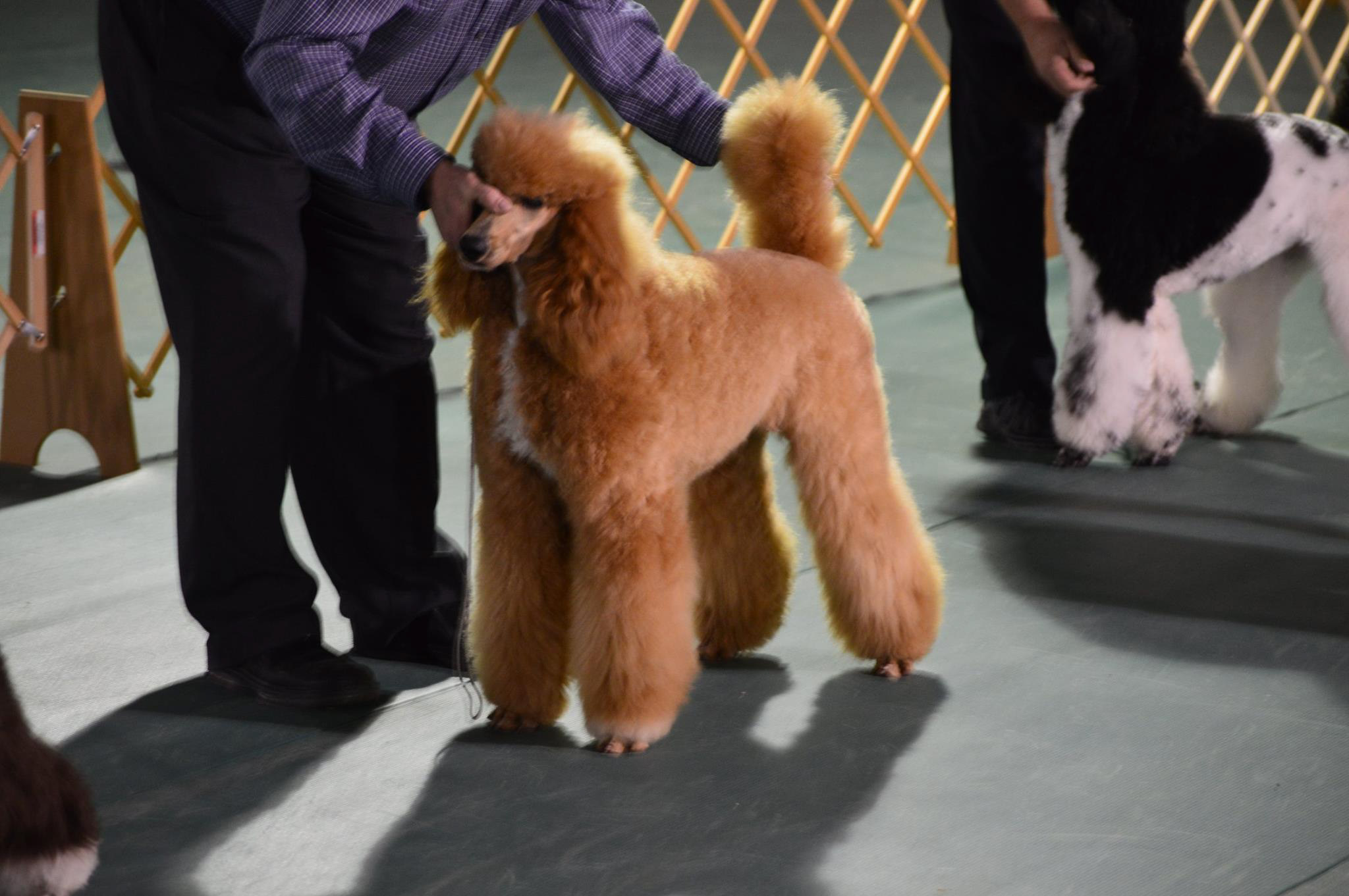
Copyright © 2018 MnJ Poodles. All photos and content are the sole property of MnJ Poodles and require written permission to use.
Website created by MoJazz Design. Contact mojazzdesign@gmail.com if interested in a website.
